It is the first Hungarian space plant experiment, called Vitapric program, that the time capsules placed on Tuesday at the Böszörményi úti campus of the University of Debrecen are supposed to commemorate in the framework of the 4th Plant Breeding Memorial Day and Conference. These capsules contain items from the scientific experiments conducted by Tibor Kapu, the second Hungarian astronaut, as part of the mission Axiom-4 on board the International Space Station (ISS), including sowing seeds, documents and special implements. Bertalan Farkas, the first Hungarian astronaut, was also present at the placement of the capsules.
News
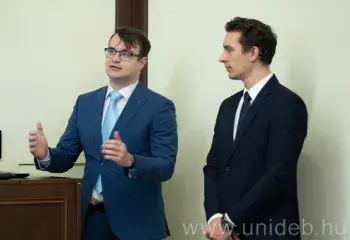
Two UD students, who are the recipients of Excellence PhD Scholarship from the foundation Count István Tisza Foundation for the University of Debrecen, have participated in an international course held at the University of Reykjavík in Iceland, focusing primarily on the skills essential for innovation-based entrepreneurship. These doctoral students then reported on their personal professional experiences to their peers, who are also exemplary students of the University of Debrecen.
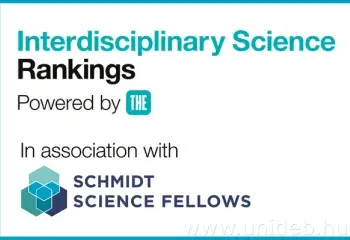
The University of Debrecen has made it to the thematic ranking of institutions by interdisciplinary science compiled by Times Higher Education, occupying a place in the 401-500 category. The recently published Interdisciplinary Science Ranking ranks a total of 911 institutions from 94 countries or territories.
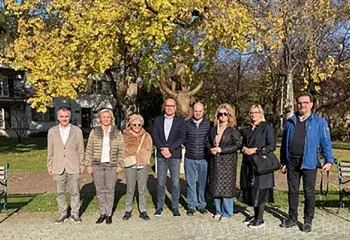
Increasing the students’ and teachers’ motivation and involving the industrial and business sectors were some of the issues discussed at the CEEPUS Network meeting on circular economy and energy efficiency held recently at the Faculty of Agricultural and Food Sciences and Environmental Management of the University of Debrecen. There were experts from as many as seven countries participating in this international academic consultation.
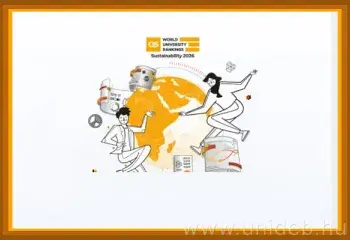
The University of Debrecen continues to maintain its leading position among Hungarian institutions of higher education in the QS sustainability rankings. It was ranked 322nd in the Sustainability 2026 world rankings published on Tuesday by the British ranking agency Quacquarelli Symonds, which makes it the best Hungarian institution. In the latest Shanghai Ranking Subject list, also published on Tuesday, UD was ranked in the 301-400 category in the field of ecology, again finishing as the best Hungarian university.

Professor Richard G. Pestell, the renowned Australian-American oncologist is joining the research and innovation activities of the University of Debrecen. The professor spoke to hirek.unideb.hu about his recent breakthrough cancer research, the experiences of the II. Oncology Workshop, and his future plans.
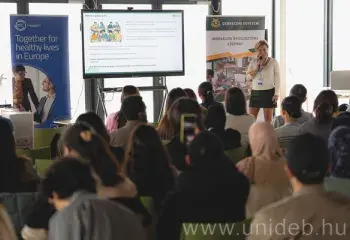
Almost one hundred students in twenty-eight teams participated in the i-Days for Life Debrecen hackathon on healthcare organized at the Innovation Center of the University of Debrecen on 10 November, Monday, and 11 November, Tuesday.

The number of foreign students at the University of Debrecen has continued to grow, with almost 7,800 students studying at UD in the 2025/2026 academic year. Attila Jenei, Director of the Coordinating Center for International Education, advocates the continuous development of the English-language training system to maintain the popularity of the institution in the international student market and to increase competitiveness.

The Centre International de Hautes Études Agronomiques Méditerranéennes (International Centre for Advanced Mediterranean Agronomic Studies – CIHEAM) supports the internationalization of the Faculty of Agriculture, Food Sciences and Environmental Management at the University of Debrecen (MÉK), as well as the expansion and strengthening of their foreign partner networks, according to a statement made during a visit to the university by a delegation from the professional organization representing 13 Mediterranean countries. Experts from CIHEAM Bari learned about the educational portfolio of MÉK and the research results of AKIT.
